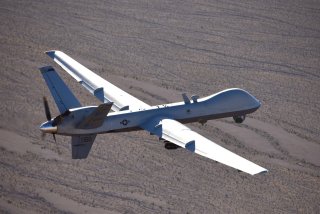U.S.-Gulf Vision 2040: Fully Integrated Gulf Security
The circumstances may finally be right to achieve a longstanding objective: designing a system of integrated Gulf defenses to protect mutual national security interests.
Leaders in the Gulf also have fundamental policy decisions to make. Thus, the second critical policy decision to be made is a mirror of the first: Gulf leaders must openly commit to a future in which the United States remains their primary—and, in certain aspects, their sole—security partner. This would require them to cease their oft-repeated threats to turn to China or Russia to fill perceived security voids. In some cases, this decision should be relatively straightforward—most obviously for Bahrain, the longtime host of U.S. Fifth Fleet headquarters. For others, it remains an open question as to whether such a decision will be taken—especially for Saudi Arabia under its still relatively new leadership. Regional leaders will also need to recognize that such a commitment carries with it the need to ensure that American support remains bipartisan for decades to come. This is undercut every time decisions are made that are widely perceived to be advancing the interests of one American political party over another.
Third, Gulf leaders must make the decision to fully cooperate. If this was an easy task, it would have been accomplished long ago. Of course, the leaders of any state would naturally seek to avoid circumstances, if at all possible, in which they must rely on others to ensure their security. It is far preferable to jealously preserve complete freedom of action rather than allow one’s security to be dependent on any neighbor’s goodwill. Only after unilateral efforts to ensure security have proven inadequate do states typically consider cooperative mechanisms. And states that are in the midst of the heady process of building their own militaries or are led by individuals inexperienced in warfare are most prone to overestimate their own abilities to accomplish missions unilaterally, as we have seen in Yemen.
Compounding these generalities are the specific mistrusts and rivalries that have long kept the Gulf divided. There are many reasons why the Middle East doesn’t possess anything close to Europe’s interlocking matrix of multilateral cooperative mechanisms, and those realities won’t be blithely wished away. Only a few years ago, a much smaller subset of countries in the Gulf Cooperation Council went through years of an ill-conceived and largely ineffectual “Gulf Rift” that saw the United Arab Emirates (UAE) and Saudi Arabia break ties with Qatar. Given this history, maximalist approaches to security cooperation are doomed to fail. Instead, integrative efforts should initially focus only on a small subset of countries—Bahrain, Saudi Arabia, and the UAE—and only on a narrowly defined set of missions: air and maritime defenses.
And finally, a fourth fundamental policy decision must be made jointly by the United States and its Gulf partners. Working toward integrated defensive capabilities can be slow, dry, technocratic work that typically advances only incrementally and on generational timelines. If this work is left only to well-intentioned security experts, the risk remains high that perceptions will fall behind progress and reasons will be found to delay necessary additional program phases. When militaries look to work together, the typical pattern is first to work through the myriad of matters relating to questions of deconfliction; only after that is successful do the counties begin work to build cooperation. And then, once cooperative mechanisms have been established, governments can begin to consider questions of military integration. And finally, only after selected military capabilities have been integrated are governments interested in exploring the most sensitive subjects of building joint systems that are inherently interdependent.
But this project should begin, not end, with a clarion call for interdependence. Bahrain, Saudi Arabia, the UAE, and the United States should declare up front that this is the goal. They will be intentionally designing a future together in which they’re each practically incapable of achieving comprehensive air and maritime security in the Gulf without the others. The military systems being established won’t work for any if they don’t work for all. In doing so, the Gulf states will “lock in” the United States as their security partner, which should remove any remaining concerns about the long-term sustainability of the American regional presence.
The Gulf governments have all found it useful to issue vision documents that clearly outline the intended objectives of their policies. In 2008, both Manama and Abu Dhabi published Economic Vision 2030 plans, and Riyadh issued Saudi Vision 2030 in 2016. These three countries, together with the United States, should together issue a joint “Vision 2040 for Integrated Gulf Security,” laying out an ambitious path ahead toward a fully interdependent system of air and missile defenses and far greater multilateral cooperation within the established maritime security structures. With such a joint vision guiding the way, there will be no more questions about America’s withdrawal and Gulf hedging, and U.S. and partner vital interests will be increasingly secure—on a much more sustainable basis.
Will Wechsler is the senior director of the Atlantic Council’s Rafik Hariri Center and Middle East Programs, and the former Deputy Assistant Secretary of Defense for Special Operations and Combatting Terrorism.
Image: DVIDS.

